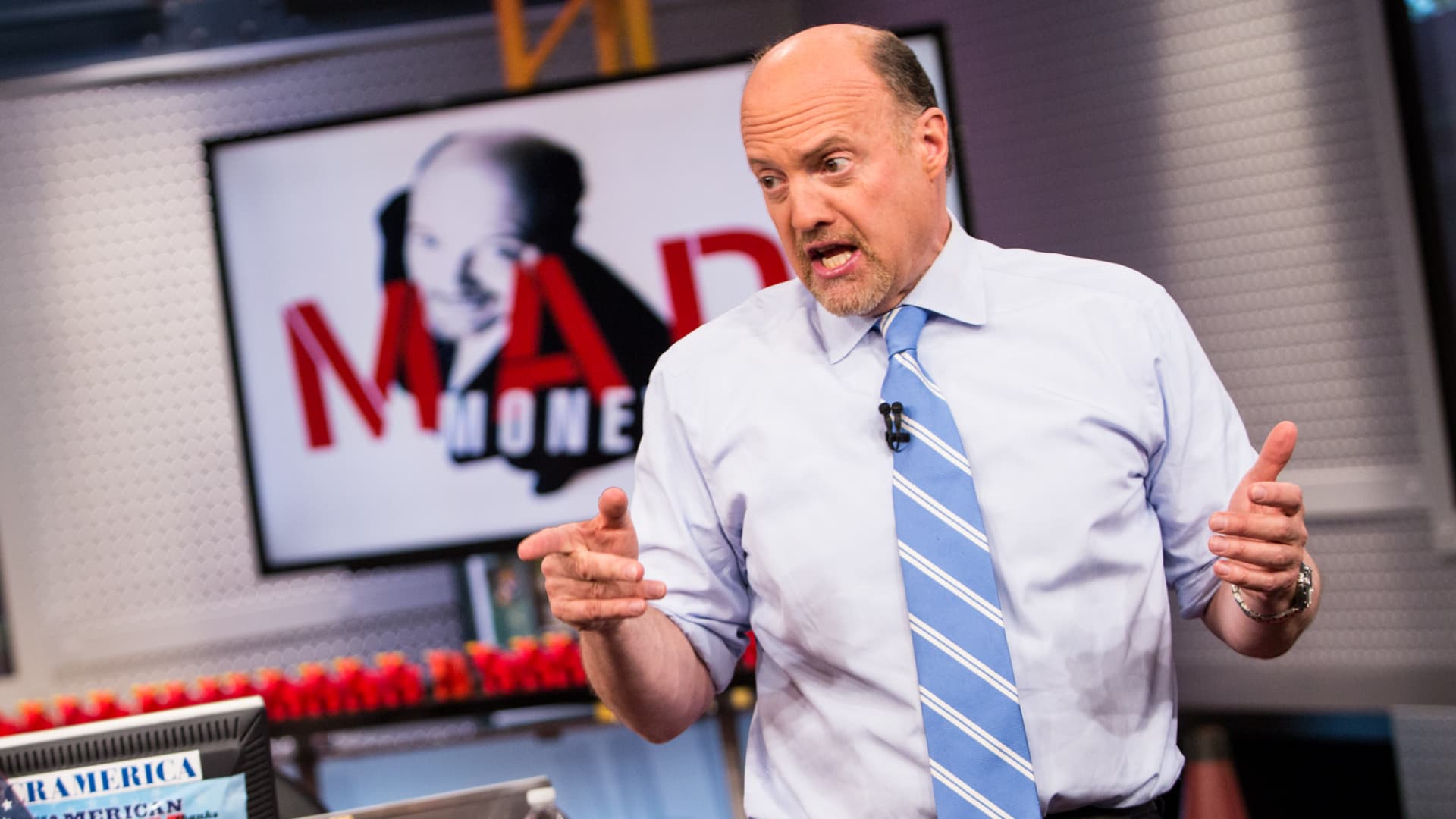As escalating tariffs threaten to disrupt global markets, CNBC’s Jim Cramer has issued a bold recommendation to consumer-facing companies: cut prices now to stay competitive. The financial expert argues that preemptive price reductions could help businesses retain customers amid rising costs and economic uncertainty. Cramer’s advice comes as the Biden administration considers new tariffs on Chinese imports, potentially triggering another wave of inflation.
The Tariff Tightrope: Balancing Costs and Consumer Demand
With the U.S. potentially imposing tariffs ranging from 7.5% to 25% on $300 billion worth of Chinese goods, economists warn of a domino effect across consumer markets. “Companies face a critical choice,” Cramer stated during his Mad Money segment last week. “They can either pass these costs to consumers and risk losing market share, or absorb some pain now to maintain long-term customer loyalty.”
Recent data supports Cramer’s concerns:
- Consumer prices rose 3.5% year-over-year in March 2024
- 56% of Americans report cutting back on non-essential purchases
- Retail inventories have grown 7% as demand softens
Industry Reactions to the Price Cut Proposal
While some analysts applaud Cramer’s strategy, others caution against blanket solutions. “Targeted price reductions make sense in competitive segments like electronics and apparel,” notes retail analyst Melissa Cohen of Bernstein Research. “But for premium brands, maintaining perceived value might outweigh short-term sales volume.”
Several major retailers have already tested this approach:
- Walmart reduced prices on 7,000 grocery items in April
- Amazon dropped prices on select electronics by 15%
- Best Buy matched competitors’ discounts on appliances
The Psychology Behind Strategic Pricing
Consumer behavior specialists emphasize that timing matters. “When prices rise across the board, shoppers remember who raised them first and fastest,” explains Dr. Sarah Lin, behavioral economist at NYU Stern. “A company that cuts prices during inflationary periods creates powerful psychological goodwill.”
Historical examples support this view:
- During the 2008 recession, Hyundai’s assurance program boosted sales by 14%
- Kraft’s 2011 price rollbacks regained 3% market share
- Target’s 2020 price-matching campaign increased foot traffic by 11%
The Broader Economic Implications
Cramer’s recommendation arrives as policymakers debate the effectiveness of tariffs. While intended to protect domestic industries, tariffs often lead to:
- Higher production costs for manufacturers
- Reduced profit margins across supply chains
- Potential job losses in import-dependent sectors
“This isn’t just about retail,” warns former Commerce Secretary Carlos Gutierrez. “When consumer spending contracts due to price sensitivity, the entire economy feels the ripple effects.”
Alternative Strategies for Weathering Tariff Storms
While price cuts represent one approach, companies might also consider:
- Supply chain diversification: Sourcing from alternative markets to reduce tariff exposure
- Product mix adjustments: Focusing on higher-margin or domestically produced items
- Value engineering: Redesigning products to maintain quality at lower costs
Home appliance manufacturer Whirlpool recently demonstrated this approach by:
- Shifting 30% of its component sourcing from China to Mexico
- Introducing a new line of tariff-resistant products
- Offering extended warranties to offset perceived price increases
What’s Next for Consumers and Companies?
As tariff decisions loom, businesses must weigh short-term pain against long-term positioning. “The companies that will thrive aren’t necessarily those with the deepest pockets,” Cramer concluded, “but those with the clearest understanding of their customers’ pain points.”
For consumers, experts recommend:
- Comparing prices across retailers more frequently
- Taking advantage of loyalty programs and cash-back offers
- Considering generic or store-brand alternatives
The coming months will test whether Cramer’s prescription proves correct. One thing remains certain: in an era of economic uncertainty, flexibility and consumer empathy may become the ultimate competitive advantages. Business leaders should monitor tariff developments closely and prepare contingency plans now rather than reacting when it’s too late.
See more Business Focus Insider Team

